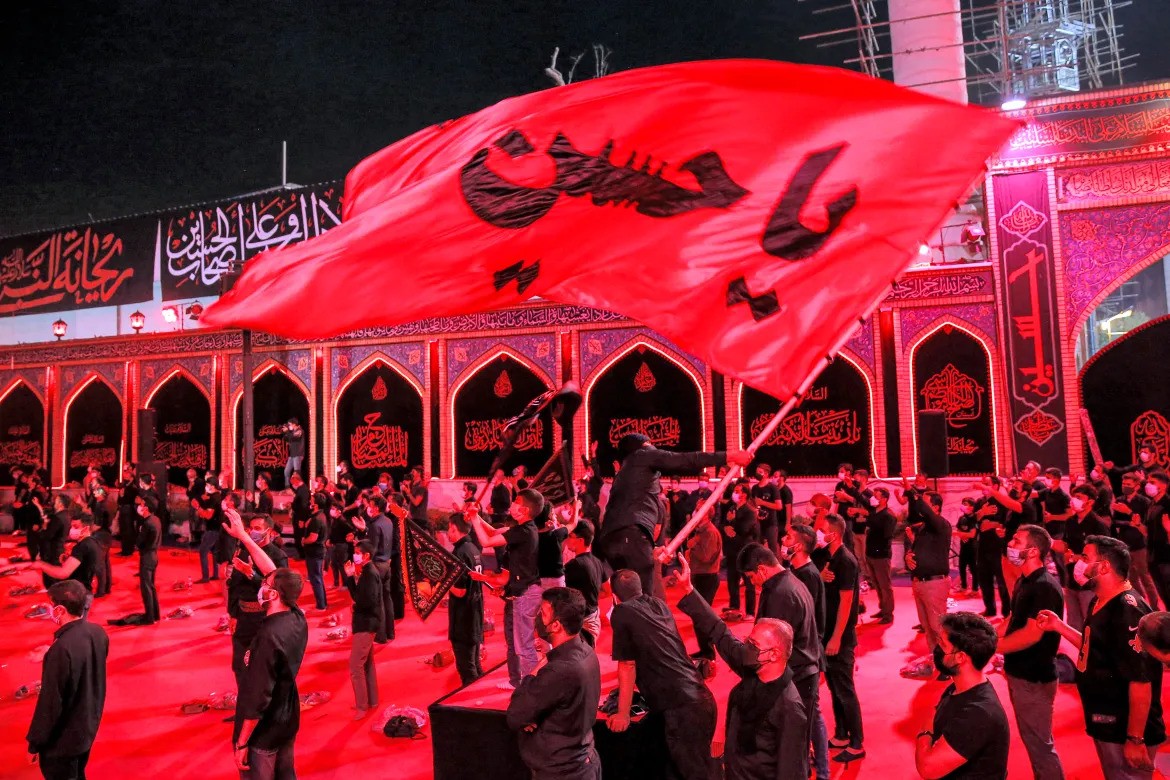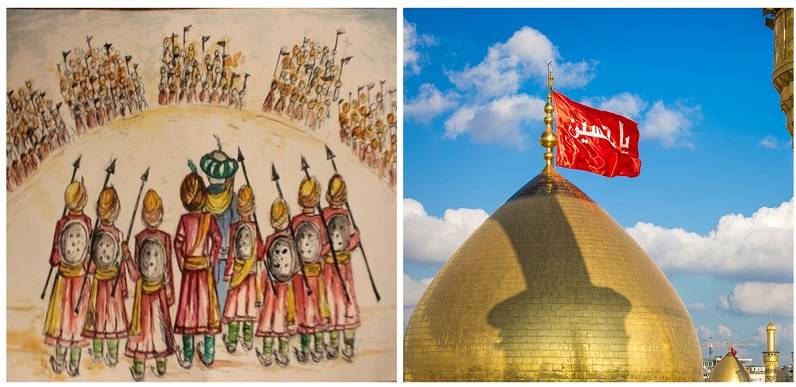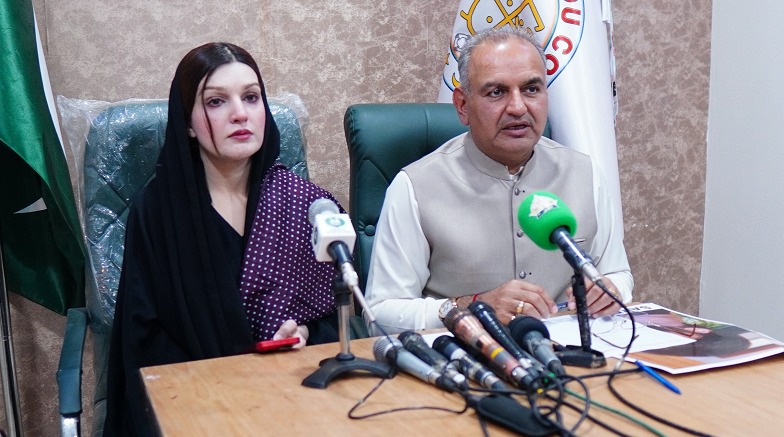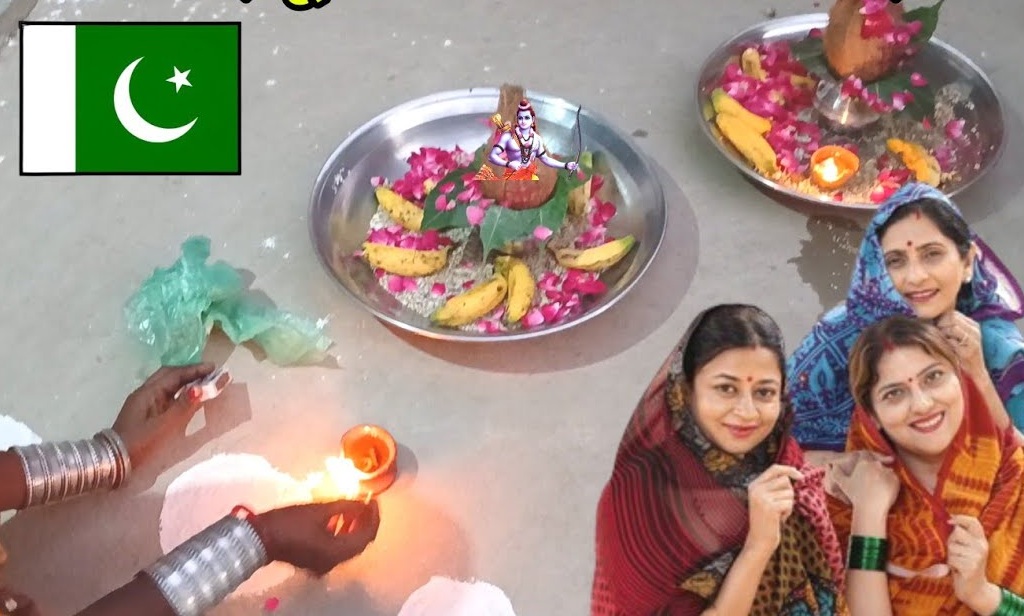Though Karbala is part of Islamic history, its moral universe transcends religion. For countless Hindus in India, Pakistan and across the world, Imam Hussain represents the ideal of Dharma Yudh — a righteous war against falsehood, much like Rama’s war against Ravana, or Arjuna’s role in the battle of Kurukshetra under the guidance of Lord Krishna.
In this stance, many Hindus find echoes of their own epics — the Ramayana and the Mahabharata, where righteousness (Dharma) was defended at the cost of kingdom, family, and even life. This spiritual and philosophical resonance is the foundation of the centuries-old Hindu reverence for Imam Hussain (R.A.).
The Concept of Dharma Yudh in Mahabharata and Karbala
In the Mahabharata, the Pandavas were not driven by greed or ambition when they went to war with the Kauravas. They were forced into the battlefield to restore justice, truth, and Dharma after all peaceful means failed. Arjuna, on the battlefield of Kurukshetra, hesitated to fight his own kin. It was Lord Krishna who reminded him that one must fight when truth is at stake, even if it demands sacrificing everything.
This scene mirrors Imam Hussain’s journey to Karbala. Like Arjuna, he tried to avoid bloodshed, sending letters and messengers. But Yazid’s corrupt rule and oppression made neutrality impossible. Hussain took a stand, knowing full well that he and his family would be killed — not for political gain, but to protect the moral soul of Islam.
Just as Krishna urged Arjuna to uphold Dharma, the teachings of the Prophet Muhammad (PBUH) and the Quran formed the guiding light for Imam Hussain.
Imam Hussain and Lord Rama: The Exile for Principles
In the Ramayana, Lord Rama is exiled from his kingdom for 14 years. He accepts the exile with grace, not to rebel or reclaim power but to uphold the promise made by his father — a symbol of truth, patience, and sacrifice. Rama gave up luxury, kingdom, and comfort for Dharma.
Similarly, Imam Hussain (R.A.) chose to walk away from luxury and security, refusing to pledge allegiance to a tyrant even when offered wealth and power. Like Rama, he accepted exile from worldly status, traveling from Madinah to Mecca and finally to Karbala — a desert with no water — to fulfill his responsibility toward truth.
Both Rama and Hussain are divine rebels — not against their religion or family, but against injustice. Their journeys are epics of sacrifice where the real battlefield is not just in the land, but in the soul and conscience.
Karbala: A Kurukshetra of the Soul
In many Hindu interpretations, Karbala is seen as a Kurukshetra of the soul — a battle between good and evil, light and darkness. Imam Hussain’s 72 companions, including his family members, are often compared to the Pandavas, who were few in number but had truth on their side.
The Kauravas, with their massive army, represent Yazid’s forces — obsessed with power, devoid of morality.
Just as Abhimanyu—Arjuna’s son—was surrounded and slain in the Chakravyuh, Imam Hussain’s son, Ali Asghar, an infant, was killed in his arms by an arrow. These tragic sacrifices are deeply embedded in emotional Hindu consciousness.
Bhakti and Karbala: Shared Emotional Devotion

In the Bhakti tradition, devotion is not just ritual — it’s emotional, passionate, and often involves divine suffering. Saints like Meera Bai and Kabir sang of divine love that burns, sacrifices, and tests the soul. For many Hindus, Imam Hussain’s martyrdom fits into this Bhakti framework, where grief becomes a means to feel closer to the divine.
Hindus who mourn Imam Hussain — by attending Muharram processions, lighting lamps, or even writing poetry — see him as a divine soul, much like how they see Rama as Maryada Purushottam and Krishna as the voice of cosmic justice.
Cultural Continuity: When Hindus Say “Ya Hussain”
Throughout India, especially in regions like Awadh, Maharashtra, Rajasthan, and Bengal, Hindu communities participate in Azadari (mourning rituals). In many villages, Hindus build and carry Taziyas, contribute to Sabeels (free water stations), and recite Marsiyas (elegies) in honor of Hussain. Similar situation may observe in many parts of Sindh, a Pakistani province where a large number of Hindus reside.
This is not mere tradition — it’s philosophical alignment. Many see Karbala as part of their collective cultural and spiritual heritage.
For them, saying “Ya Hussain!” is not about conversion or theology — it is a cry of the soul yearning for justice.
Writers Who Bridged Epics and Karbala
Hindu poets have also drawn direct parallels between the Ramayana, Mahabharata, and Karbala in their works:
-
Munshi Premchand’s play Karbala presents Imam Hussain as a moral warrior akin to Rama.
-
Daya Shankar Kaul Nasim, a Hindu marsiya writer, mourned Hussain in the same breath as Arjuna and Abhimanyu.
-
Modern poets often invoke the imagery of dharmic battles when speaking of Karbala, proving that Hussain’s appeal lies beyond any one scripture.
- Dr Ramesh Kumar Vankwani, a Pakistani Hindu parliamenterian highlighted sacrifice of Hussaini Brahamins belonging to present-day city of Lahore, Pakistan.
Why These Parallels Matter Today
In a world plagued by religious division and intolerance, drawing moral and spiritual connections between traditions is not just poetic — it’s necessary. The bond between Karbala and Kurukshetra, between Imam Hussain and Arjuna, is not about equating religions, but about finding shared moral ground.
When a Hindu cries for Hussain, he is not becoming less Hindu — he is becoming more human.
Imam Hussain’s Karbala reminds the Hindu mind of their own epics. And the message is clear:
“Wherever truth is challenged, wherever injustice rises — Karbala happens again. And every soul that stands for justice is Hussaini.”
One Dharma, Many Names
Hazrat Imam Hussain (R.A.) is not confined to Islam, just as Rama is not confined to Hindus. Both represent a higher calling — to truth, to sacrifice, to righteousness. Both chose to suffer so that humanity may awaken.
By viewing Karbala through the lens of Ramayana and Mahabharata, Hindus find not just admiration but spiritual kinship with Hussain. It is not surprising, then, that in many parts of India and Pakistan, Hindus keep Karbala alive in their hearts, homes, and hymns.
Because when Ram fights for Sita, when Krishna guides Arjuna, and when Hussain faces Yazid, it is one message spoken in many tongues: Dharma must live, even if we must die.



